SUMMARY
This is AI generated summarization, which may have errors. For context, always refer to the full article.
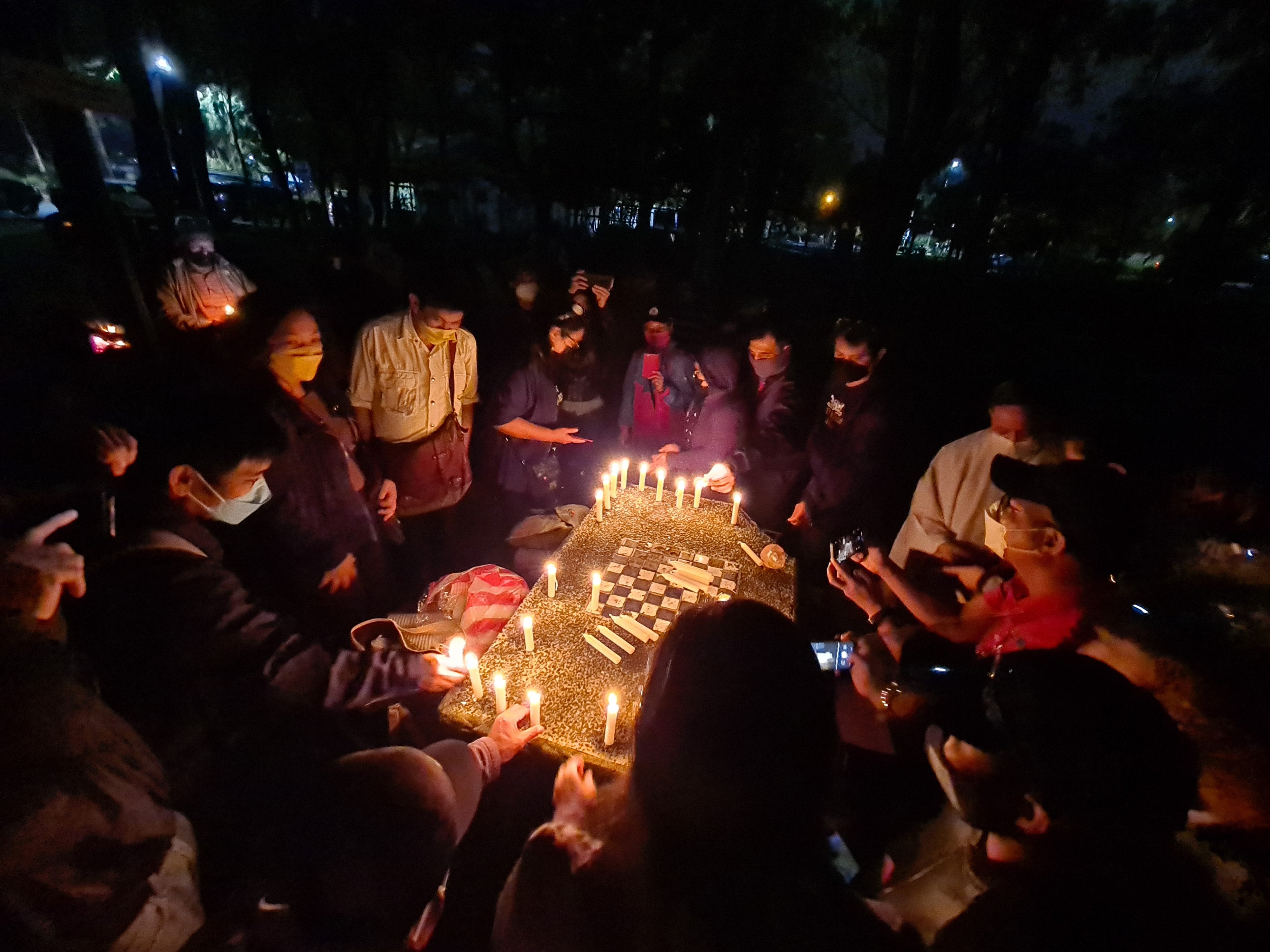
They came in trickles, journalists “unsure and afraid of the angels and demons of the pandemic.”
“What is left of the BCBC converged to pray for those who continue to fight,” said Baguio Correspondents and Broadcasters Club (BCBC) Secretary Maria Elena Catajan on a Facebook post on Tuesday, November 2.
In Camp Pepot, a corner of Burnham Park named after journalist and First Quarter Storm activist Pepot Ilagan, BCBC members offered prayers and lit candles for colleagues slain by bullets and the COVID-19 pandemic that has rocked the nation for nearly two years.
A priest recited prayers. In the tradition of the Cordilleras, the journalists offered a native chicken for protection against sickness, attacks, and work-related accidents.
BCBC president Aldwin Quitasol noted that All Souls’ Day is also the International Day to End Impunity for Crimes Against Journalists. The United Nations General Assembly passed the resolution in 2013, designating the date as a reminder of continuing attacks against journalists.
This year, the theme highlights the psychological trauma to journalists who are victims of human and natural threats.
“What we did a while ago was to remember and pay our respects to our colleagues who died years ago to those who died during the pandemic,” Quitasol explained.
“We offered prayers and tribute to our comrades who fell victim to violence…. We asked for protection for all those who continue to do their work despite the threats they face,” said Quitasol.
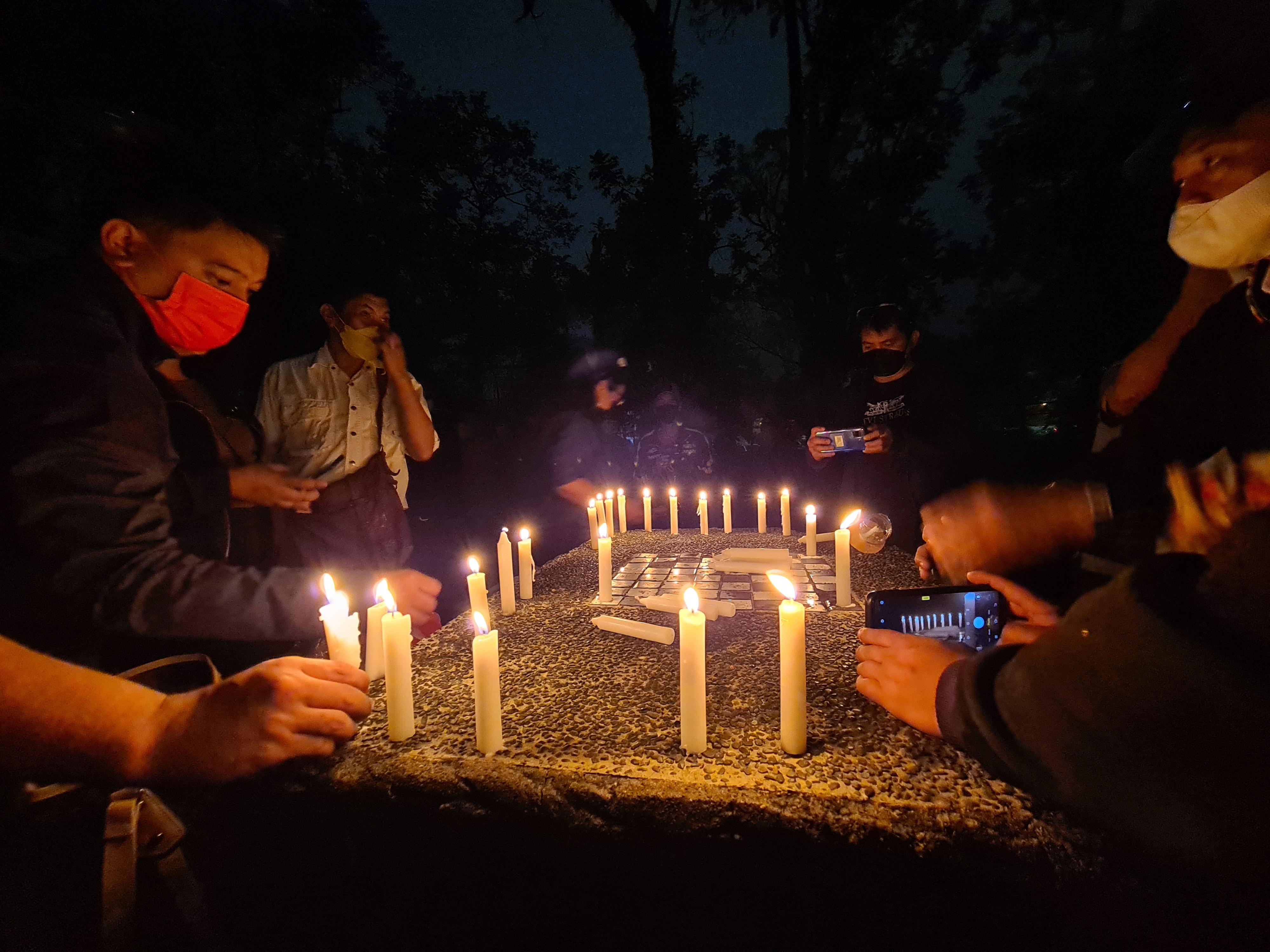
“We prayed for the colleagues who lost their jobs, for those who are being persecuted, for the sick, for those who could not join us and for those battling their own demons,” Catajan added.
Catajan was a reporter for Sun Star Baguio, the only daily paper in Northern Luzon, before the outfit closed. The paper was one of the casualties of the economic crisis brought by the COVID-19 pandemic.
Changing landscape
National Union of Journalists of the Philippines (NUJP) Baguio chair Franklin Cimatu said the pandemic changed the media landscape with several media outfits also reducing their pages and staff. Mounting repression, which worsened during the Luzon-wide lockdown, hit outlets like ABS-CBN.
“The closure of the two outfits is a big loss. They are the most active in [gathering news] and have a wide reach and circulation in the region. Some smaller outfits and broadcast stations also rely on them for additional stories and information,” Cimatu said.
“In Baguio, the work from home policy forces some photographers and TV reporters to stay in their houses. This is out of character because they should be reporting on site,” he explained.
“However, they have no choice because they are also subject to work-from-home policies. What they do is get footage from government stations, meaning these are filtered. It will then be again subject to editing and filtering for the news. It’s like double censorship,” Cimatu added.
From bad to worse
Quitasol said journalists were among the many people who expressed hope in the promises of President Rodrigo Duterte.
“But years have gone by, and nothing has changed from before. [The situation] even became worse compared to previous administrations, especially for the media. Journalists live in fear and uncertainty almost every day. The COVID-19 pandemic, the various attacks, and culture of impunity are the greatest challenge to the media at present,” he said.
Four BCBC members have died since the pandemic started. Two were confirmed COVID-19 cases. Twelve others got infected and were able to recover.
Press Emblem Campaign tally said seven journalists in the Philippines were among 1,843 journalists that succumbed to COVID-19 since the pandemic started.
Journalist Orlando Dinoy, gunned down in his apartment on Oct. 30 in Poblacion Uno, Bansalan, Davao del Sur, was the 21st journalist killed under the Duterte administration.
Cimatu noted that he and other journalists face libel cases and get red tagged.
Cimatu, an editor of Baguio Chronicles and a Rappler contributor, faces cyberlibel charges filed by former Agriculture Secretary Manuel Piñol.
Editor Kimberlie Quitasol and volunteer reporter Khim Abalos of the online news outfit Northern Dispatch were slapped with cyberlibel raps by former Police Regional Cordillera Director R’win Pagkalinawan. Tabuk City Mayor Darwin Estranero also filed libel cases against two journalists from Guru Press, a community paper in Kalinga.
On June 24, the Commission on Human Rights-Cordillera Administrative Region issued a resolution describing the police and military red-tagging of Northern Dispatch staff as a violation of their human rights and press freedom.
It is part of the job to be taken for granted, maligned, bombarded by false information, or accused of peddling fake news, Cimatu said. But journalists must continue writing, upholding the “literature of verification”, he stressed.
“This is what separates the [journalists] from the bloggers. We must always verify and be careful of the information we put in our reports. We must uphold our standards no matter what,” Cimatu said.
“Indeed, we are living a hard life, but we continue because nobody else would do this but us. [Journalism] is our job, this is our vocation, this is our priesthood, so we have to do this otherwise no one will do it,” he said. – Rappler.com
Sherwin de Vera is a Luzon-based journalist and an awardee of the Aries Rufo Journalism Fellowship.
Add a comment
How does this make you feel?
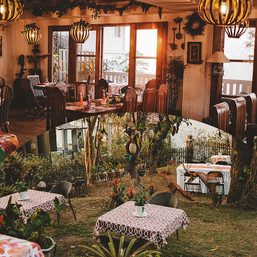
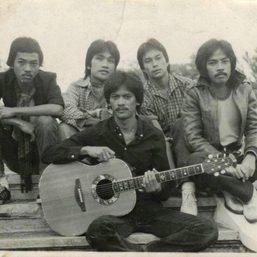
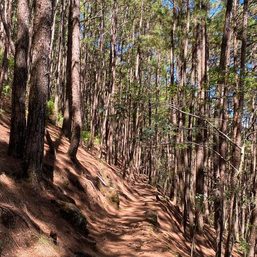
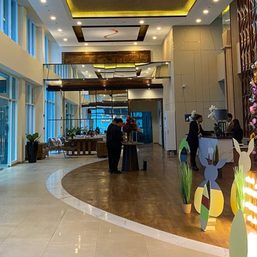
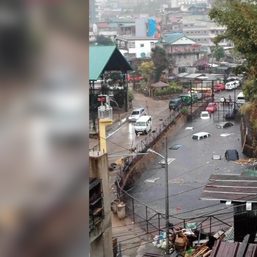
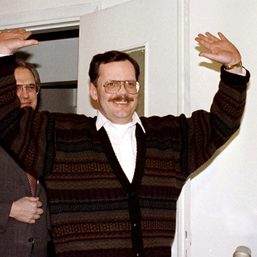
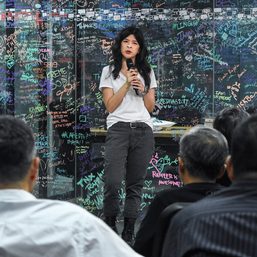

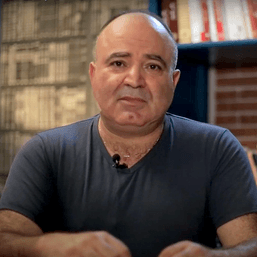

There are no comments yet. Add your comment to start the conversation.